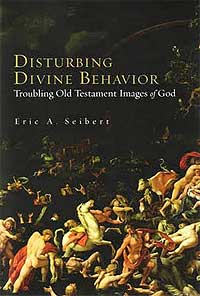Some may be familiar with Paul Copan‘s recent book Is God a Moral Monster? Making Sense of the Old Testament God (Baker, 2011; Buy from Amazon.ca | Buy from Amazon.com). It is an attempt to address the criticisms leveled against the God of the Hebrew Bible by the New Atheists, among others. It’s an OK book, although I am ultimately unsatisfied with his attempts.
But it doesn’t matter what I think! Tony Thom Stark has donned his Iron Man suit and produced a 303-page review of Copan’s book! 303 pages! Talk about the SmackDown Slam of the Week! Copan’s book is only 252 pages to begin with! To say the review is scathing would be a bit of an overstatement, but I do like the advice Stark gives to the reader at the end of the review:
So what do we do now? How do we move on? Where do we go from here? I suggest two courses of action. First, email Paul Copan and ask for an apology for his apologetics. Moreover, challenge him to take his responsibilities, both to the biblical text and to the church, more seriously from now on. Tell him you’re not interested in easy answers; you want to know how to struggle.
Second, keep struggling, but don’t do it on your own. Find a community that will allow you to be honest with your doubts, a community that won’t force you to comply with phony definitions of faith that allow for no dissent and no despair. Find a community that will not only allow you to struggle openly, but one that will struggle with you, without the need to force easy answers onto questions that won’t allow for them. Find a community that knows how to argue, both with one another, and with the text. The Bible is an argument with itself. Find a community that knows that joining in that argument is exactly what it means to be a people of the book. Find a community that doesn’t let experts speak over the top of the ignorant. Find a community that holds those who doubt in high regard, and one that treats those with all the answers with the kind of care appropriate to the mentally ill.
If you’ve already found such a community, find someone who hasn’t. And if you haven’t found one yet, keep looking. They’re out there. I’ve found mine. You’ll find yours. Christian or not, we all need such communities; it’s what it means to be human. There may not be any answers forthcoming, but woe to the one who has questions and no one to throw them at.
“Email Paul Copan and ask for an apology for his apologetics” – I love it! Now, to be fair, Stark’s review is written in a conversational tone, so that in part explains the length. And he isn’t mean spirited; in contrast he is truly concerned for the problems that Copan’s approach raises for the academic and Christian community.
Stark’s review, entitled, “Is God a Moral Compromiser? A Critical Review of Paul Copan’s Is God a Moral Monster?“, is available from his website here. If you have read Copan, or are planning to read Copan, I encourage you to download it and read it alongside Copan.
[I should probably mention that my recommendation to read Copan and Stark together in no way implies that I agree with either of them!]
(HT to my buddy Randal Rauser for drawing my attention to Stark’s review)

 Disturbing Divine Behavior:
Disturbing Divine Behavior: